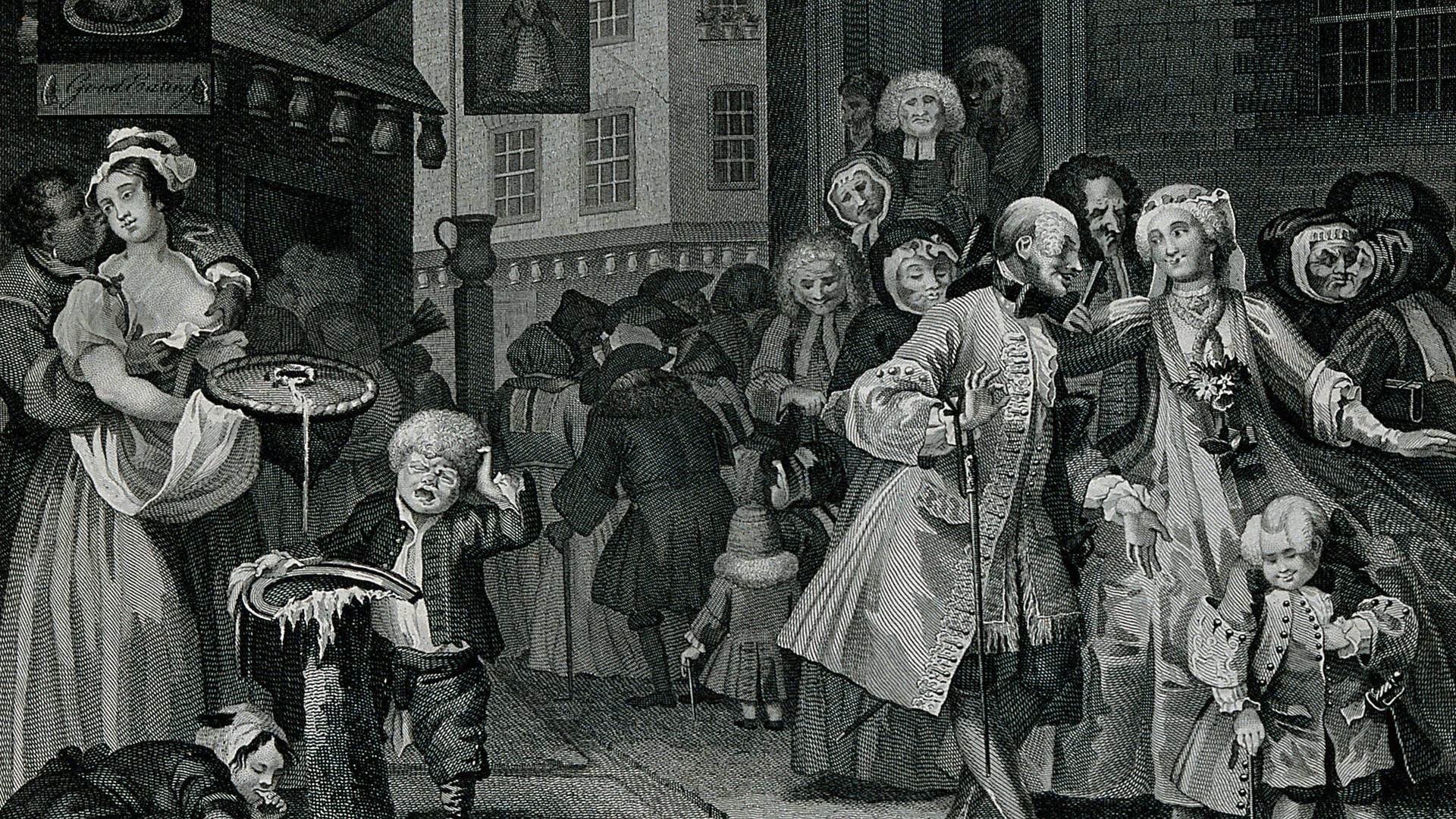Pious Huguenots are shown leaving church in the squalor of London in William Hogarth's 'Noon'
As long as there has been war, there have also been people fleeing conflict and attempting to find shelter outside their homeland.
But in English, the word "refugee" is suprisingly recent in origin. It has its roots in 17th-century France, when a huge influx of French migrants known as Huguenots left their country to escape religious persecution. The French réfugié became the English refugee.
Huguenots were Reformed Protestants who felt unable to follow their faith under France's Catholic monarchy. Tens of thousands of French Protestants settled in non-Catholic countries across Europe, and in colonies in America and South Africa, but one of the most common destinations was England — particularly the East End of London.
The journey was dangerous: Some accounts from the time are eerily reminiscent of modern refugees' attempts to enter Europe. A newsletter in 1681 described boats arriving "with few men in them, they sending their wives and children away first, and most of these have run great hazards at sea."
Then as now, the refugees received a mixed welcome. One pamphlet from the time mocks Huguenots as "canary birds naturalised in Utopia" — a reference to a stereotype of Huguenots keeping pet birds in cages in their workplaces. Utopia was, of course, England.
Not all the responses were unsympathetic, however. A sense of fellowship from some English Protestants helped the Huguenots to integrate into the British economy relatively quickly.
One 17th-century sermon by the preacher Samuel Bolde berates its readers for their failure to feel empathy: "Now if you would find help, and relief from others, when destitute, afflicted, and persecuted, have some regard to, your persecuted Neighbours, in this their day of affliction. Nature, Religion, Christianity, all that is good and excellent intreat, and importune your Charity. Can you deny these sufferers?"
Eventually, the Huguenots assimilated remarkably thoroughly into British life. Some of the most famous figures in British culture and politics have Huguenot family names. The actor Laurence Olivier, Peter Mark Roget (of Roget's Thesaurus), and Sir John Houblon, the founder of the Bank of England, are typical examples.
